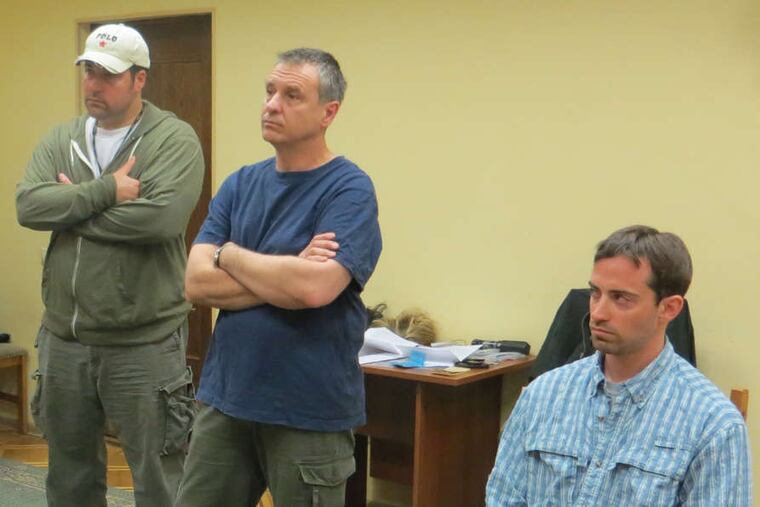U.S. envoy accused by Russia of spying
He was expelled from the country. "It is right out of the 1980s playbook," a CIA veteran said.

MOSCOW - An American diplomat accused by Russia of spying for the CIA was ordered to leave the country Tuesday after a highly publicized arrest that seemed designed to embarrass the United States and its premier intelligence service.
The expulsion of Ryan Fogle was announced by the Russian Foreign Ministry, and footage on state-run television showed him wearing a blond-streaked wig and baseball cap as he was held facedown and handcuffed.
The Soviet-style episode came just days after Secretary of State John Kerry visited the Russian capital in an attempt to soothe diplomatic tensions over the civil war in Syria and the investigation of the Boston Marathon bombing.
A statement released by the Russian Foreign Ministry, which appeared intended to put the United States on the defensive, said, "While our two presidents have reaffirmed their willingness to expand bilateral cooperation, including between intelligence agencies in the fight against terrorism, such provocative Cold War-style actions do not contribute to building mutual trust."
Fogle, 29, who is listed as a low-level diplomat at the U.S. Embassy in Moscow, was accused of attempting to recruit a Russian official to work as a CIA spy. His arrest Monday night was captured on videotape and made public Tuesday afternoon just as the U.S. ambassador to Russia, Michael McFaul, was beginning a previously announced question-and-answer session on the social-media site Twitter. McFaul said during the exchange that he would not comment on the case.
Russia's domestic security service said Fogle was caught with a stack of cash. Images showed a collection of amateurish spy gear, including a compass, sunglasses, and a form letter promising million-dollar payments and providing tips on setting up an anonymous e-mail account.
U.S. officials did not dispute that Fogle was a CIA employee, and they sought to play down the potential for any diplomatic fallout.
A CIA spokesman declined to comment. A State Department spokesman said only that "an American staff member at the embassy" had been briefly detained.
CIA veterans marveled at the theatrical nature of the arrest and likened it to the spy-vs.-spy showdowns of the Cold War.
"It is right out of the 1980s playbook," said Milton Bearden, who served as chief of the CIA's Soviet/Eastern European Division.
Fogle was turned over Tuesday to the U.S. Embassy, where he is listed as third secretary in the political section.
Russia's government-financed RT television channel reported that Fogle's alleged target was a Russian counterterrorism official working in the North Caucasus region - an allegation that suggests a tie to the Boston bombing.
Experts said that the handling of Fogle's arrest would have required approval from Putin.
Public records indicate Fogle is a native of Missouri and a graduate of Colgate University in New York. A woman who answered the phone at his parents' residence in St. Louis declined to comment.
Images of Fogle released by Russia show a youthful American seated at a table in an FSB office, as well his diplomatic identity card, a stack of 500-euro notes, and a cellphone. The paraphernalia prompted comparisons to the 1960s spy spoofs on television.
"Who uses a compass these days?" asked Mark Galeotti, a New York University professor who studies Russian security affairs.